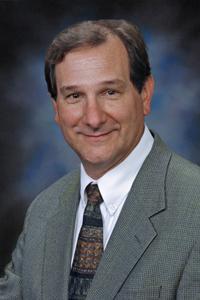Meet EPA Scientist Wayne Cascio

A Heart Healthy Population
EPA scientist Dr. Wayne Cascio spent more than 25 years as a cardiologist helping people take care of their hearts. Now he is bringing a broader view of public health to EPA by leading research on the links between exposures to air pollution and maintaining a healthy heart.
What research are you doing at EPA?
We are looking at how air pollution affects the heart. As the director of the Environmental Public Health Division, I have the opportunity to be involved in research that occurs at different scales. We are doing studies from the single cell level to studies of entire populations. The ability to integrate the research and those findings makes it a very unique experience.
As a cardiologist, I think the ability to explore some of the reasons why epidemiology studies show an adverse effect on the cardiovascular system is interesting. The most important part is that we can translate that into some actionable information. For example, the Healthy Heart outreach seeks to improve public health and has been a way for us to translate our research into information the public can use to protect their health.
Can you tell us more about the Healthy Heart Initiative?
Healthy Heart started as an environmental health education program to help people who have heart disease understand how air pollution can worsen their heart disease and even trigger heart attacks.
We wanted make sure people know how to find information about their local air quality so that they can make the best decisions about when to be outside. For example, people can use EPA websites like the Air Quality Index (AQI) and Enviroflash to check the air quality in their area and plan activities to reduce exposure to air pollution on bad air days.
How does exposure to air pollution affect the heart?
For people with heart disease, short-term exposures to high levels of air pollution can trigger a heart attack by affecting blood vessel function and increasing the chance of built-up plaque in the artery to rupture and cause a blood clot to form. Short-term exposures would be over hours or days.
For people who are otherwise healthy, long-term exposures to high levels of particulate matter in air pollution can increase or accelerate the formation of blood vessel disease in the body, which makes you more likely to have a heart attack or stroke.
What do you like most about your research?
I spent 25 years as a cardiologist helping individual patients. When I became Chief of Cardiology at the Brody School of Medicine, I started thinking in a much broader way about public health. It caused me to shift my attention from the individual patient to the health of a population. My work at EPA allows me to do that on a much larger scale. Many people don’t think of it this way, but the EPA is a public health organization. Our mission is to improve public health and the environment.
When did you first know you wanted to be a scientist?
As far back as I can remember, I was always asking why and how. My career path moved me initially to medicine rather than science. It was during my internal medicine residency that I began to appreciate how many unanswered questions there were. I started working with professors to answer some of those questions and I loved it. That is when the scientist in me was born. My early scientific career was further developed by getting a National Research Service Award, and a Physician -Scientist Award from the National Institutes of Health. My career really developed from an investment made in my future by those organizations.
If you could have dinner with any scientist, past or present, who would you choose and what would you like to ask him or her?
I would choose Ben Franklin. He was a really good scientist, but he was also a statesman. My question would be, where did you find the time to do everything? He was a super smart guy with a variety of interests. I’m often criticized for being too unfocused, so he’s my hero because he was involved in so many things and so successful.
If you were not a scientist, what would you be doing?
If I could make a living at it, I would be an artist. I paint with acrylics because I’m impatient, but I’d probably try to make a go of it as an artist and teach art.
Any advice for students interested in science as a career?
Over the years, I’ve mentored students of all ages. It has been one of the great joys of my career. I would say: science never sits still. New information is constantly being generated which generates new questions and new opportunities for inquiry. You will never be bored. If you are excited by the possibility of answering new questions, science will offer you a great environment and career to keep learning and growing and using that information.
